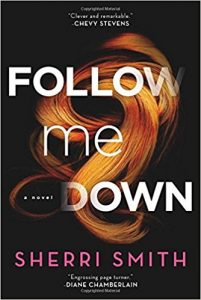Oh, man, it’s been so hot here, I’m tempted to run down the street naked and dive into random sprinklers. Mr. PCN said the neighbors would just think it’s a regular Friday.
The other day, I was reading with the window open and smelled smoke and got all annoyed at my neighbor for ruining my air. He’s always outside my window smoking something or other.
Then I turned on the news and saw it wasn’t my rude neighbor but a FIRE.
Speaking of heat, below are our favorite July reads. This month, we have a guest contribution from Mr. PCN, who liked a book so much he wanted in on the NSL action.
From Jen at Brown Dog Solutions:
Hum If You Don’t Know the Words by Bianca Marais (Putnam, July 11)
 Set in the midst of apartheid in 1970s South Africa, Bianca Marais’ debut novel is heartbreaking and inspiring, revolting and uplifting. The darkness of hate is countered by the illumination of love and compassion. The result is an intensely powerful story that transcends time and geography.
Set in the midst of apartheid in 1970s South Africa, Bianca Marais’ debut novel is heartbreaking and inspiring, revolting and uplifting. The darkness of hate is countered by the illumination of love and compassion. The result is an intensely powerful story that transcends time and geography.
Robin is nine years old when her parents are killed. Her only remaining relative is her aunt, Edith, an airline hostess.
Beauty is a widow schoolteacher whose daughter, Nomsa, goes missing during the Soweto student uprising. Beauty leaves her home in the rural village of Transkei to search for Nomsa.
Fate brings the two together when Edith needs someone to look after Robin while she travels for work, and Beauty needs a residence in order to stay and try to find Nomsa. Robin’s white world clashes with Beauty’s black one at first, but they each learn from the other. The lessons are rarely easy, but their journey together is gripping and hopeful.
Hum If You Don’t Know the Words is at times very difficult to stomach. The hate and disregard for human life is too easily disseminated. But Marais does find light in the darkness, reminding readers that change starts with those little glimmers of kindness and compassion, and that bigotry is learned behavior that, under the right circumstances, can also be unlearned.
King Louie’s Shoes by D.J. Steinberg, illustrated by Robert Neubecker (Beach Lane Books, ages 4-8, July 11)
 D.J. Steinberg’s nonfiction picture book about King Louis XIV is whimsically delightful. Adults will have as much fun reading it to children as kids will have taking in the world of this famous French king.
D.J. Steinberg’s nonfiction picture book about King Louis XIV is whimsically delightful. Adults will have as much fun reading it to children as kids will have taking in the world of this famous French king.
The story (accompanied by fun facts at the end) of short-stature Louie’s high-heeled shoes is as captivating as Neubecker’s fantastic caricature illustrations, bold with color and humor.
Louie wants to be big in every way. He gives big gifts, holds big parties, but he needs to figure out how to change his height. He tries tall wigs and high thrones before asking his shoemaker to craft him special shoes. The result offers a life lesson complete with giggles. Steinberg and Neubecker know how to make learning fun, for kids and adults.
From Rory at Fourth Street Review:
Gather the Daughters by Jennie Melamed (Little, Brown, July 25)
 If a book can be said to be both dreadful and wonderful, then Gather the Daughters is one such book.
If a book can be said to be both dreadful and wonderful, then Gather the Daughters is one such book.
Set in an unknown period after a fire destroys civilization, an island community is formed by ten men desiring a deeply patriarchal society. These men, known as the ancestors, make a list of things a person shalt not do and those are the rules that govern their small society.
The men farm, or carve, or labor outside the home, while the women keep house. Females submit to their father until they are married, and then they submit to their husbands. When their child has a child, they take their final draught. The shalt-nots are never questioned, and if women were to question them, well, bleeding out is very common in childbirth.
Janey, Amanda, Caitlin, and Vanessa are four girls living in this rustic island community. They begin to question the rules, and that is a very, very dangerous thing to do. When one of the girls is murdered for desiring something better for her own daughter, the girls start a resistance.
Eerie, bleak, and full of dread, Jennie Melamed’s debut novel is also excellent. Her beautiful prose balances the grim existence of the characters, and the multiple narrators flesh out life on the island. For those who enjoy dystopian fiction, this will be my go-to recommendation of the summer.
From Lauren at Malcolm Avenue Review:
Fierce Kingdom by Gin Phillips (Viking, July 25)
 In Fierce Kingdom, Gin Phillips turns an idyllic mother-son afternoon at the zoo into a skin-prickling, breath-holding nightmare.
In Fierce Kingdom, Gin Phillips turns an idyllic mother-son afternoon at the zoo into a skin-prickling, breath-holding nightmare.
As Joan and her four-year-old son rush to the park’s exit at closing time, they find their path blocked by a man with a gun. What follows is a three-hour, real-time evening of cat and mouse, where every noise could mean death around the corner.
Phillips does a stupendous job creating an atmosphere that will take readers straight to the gut of the hunted. This is one hell of a summer blockbuster.
A Beautiful, Terrible Thing: A Memoir of Marriage and Betrayal by Jen Waite (Plume, July 11)
 We’ve all been there. Watching a movie or reading a book, we’ve all said, “That could never happen to me,” or “There’s no way I wouldn’t have seen THAT coming.” Jen Waite is here to dispel those notions with her gutsy and oh-so-important memoir.
We’ve all been there. Watching a movie or reading a book, we’ve all said, “That could never happen to me,” or “There’s no way I wouldn’t have seen THAT coming.” Jen Waite is here to dispel those notions with her gutsy and oh-so-important memoir.
Jen and her husband Marco’s first encounters were out of a Hollywood movie. The sparks flew, they “just knew.” Five years later, the blissful couple is married and expecting a baby.
But after his daughter is born and his wife is at her most vulnerable, Marco changes into someone unrecognizable. In Before and After timelines, Waite takes readers through the horrific journey of discovering the man she thought she knew was a textbook psychopath.
Waite pulls no punches on any front, writing with scathing honesty about herself, Marco, guilt, shame, cognitive dissonance and the myriad emotional assaults that come from such a discovery.
This is not a story of redemption. Waite required none and Marco can never obtain it. It’s the story of one woman courageous enough to share her story to shine a light for others.
From Patti at Patti’s Pens & Picks:
Chasing Down a Dream by Beverly Jenkins (William Morrow Paperbacks, July 4)
 This eighth book in the awesome Blessings series, about a woman who bought a town on eBay, has two citizens marrying, one citizen planning another’s funeral, and Gemma and her grandson working on fostering and adopting two orphans injured in a tornado. Another very enjoyable visit with the Henry Adams community in Kansas.
This eighth book in the awesome Blessings series, about a woman who bought a town on eBay, has two citizens marrying, one citizen planning another’s funeral, and Gemma and her grandson working on fostering and adopting two orphans injured in a tornado. Another very enjoyable visit with the Henry Adams community in Kansas.
From Mr. PCN:
First of all, I’d like to say I am honored to be among all of you who tirelessly contribute to the NSL. Here’s my contribution.
Afterlife by Marcus Sakey (Thomas & Mercer, July 18)
 Marcus Sakey’s novel encompasses a London street urchin in 1532, a modern-day sniper being chased by two FBI agents, and not only what connects them but literally everything in between. I’d describe it as spiritual science fiction with a love story at the center of it all. Confused? Just read it.
Marcus Sakey’s novel encompasses a London street urchin in 1532, a modern-day sniper being chased by two FBI agents, and not only what connects them but literally everything in between. I’d describe it as spiritual science fiction with a love story at the center of it all. Confused? Just read it.
Note: Producers Ron Howard and Brian Grazer have grabbed Afterlife to turn it into a feature film. I hope they don’t muck it up.
From PCN:
Persons Unknown by Susie Steiner (Random House, July 4)
 Manon Bradshaw from last year’s Missing, Presumed is back, and this time she has 1.5 kids, one she adopted and another in her tummy. The single mom (by choice) has moved from London to give her family the elusive better life, but then murder happens nearby. And the main suspect is someone Manon will turn her full fierceness on to protect.
Manon Bradshaw from last year’s Missing, Presumed is back, and this time she has 1.5 kids, one she adopted and another in her tummy. The single mom (by choice) has moved from London to give her family the elusive better life, but then murder happens nearby. And the main suspect is someone Manon will turn her full fierceness on to protect.
She and her former detective constable Davy, who’s now a detective sergeant, are the kind of decent, smart, and witty people with whom I’d want to share a pizza (English sandwiches?) if they were real. Add the complex plot and Unknown proves Steiner should be as well known as the best writers in crime fiction.
In a troubling look at the rape conviction of Willie J. Grimes, little justice is found in the American justice system.
This sweet, mystical realism middle-grade book about an orphan and his pet parrot examines the theme “the winds of change mean fortune lost or fortune gained.” As the almost-ten-year-old Pablo discovers when he goes in search of the truth about where he came from, it isn’t always easy to tell when what’s been lost and what’s been gained.
Sadie Blue is seventeen, pregnant, and a Loretta Lynn super fan. She’s also an abused newlywed at the end of her rope. Living in the impoverished Appalachian community of Baines Creek, Sadie is supported by many of the small town’s inhabitants.
Three weeks following a party at an upper-crust British vacation estate, one attendee is in critical care and Martin Gilmour is undergoing police questioning.
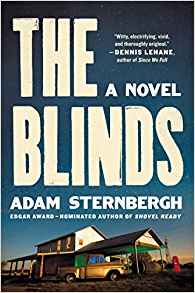 Calvin Cooper is the sheriff in an isolated Texas town full of people who are starting over after they either committed a violent crime or witnessed one. But since the residents have had their memories entirely or partially erased, they don’t know if they’re innocents or killers. Things go well for 8 years, until people start getting murdered.
Calvin Cooper is the sheriff in an isolated Texas town full of people who are starting over after they either committed a violent crime or witnessed one. But since the residents have had their memories entirely or partially erased, they don’t know if they’re innocents or killers. Things go well for 8 years, until people start getting murdered.
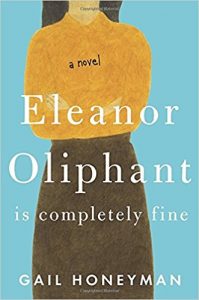 Then I met Eleanor Oliphant, and she was exactly what I needed.
Then I met Eleanor Oliphant, and she was exactly what I needed. Set in the midst of apartheid in 1970s South Africa, Bianca Marais’ debut novel is heartbreaking and inspiring, revolting and uplifting. The darkness of hate is countered by the illumination of love and compassion. The result is an intensely powerful story that transcends time and geography.
Set in the midst of apartheid in 1970s South Africa, Bianca Marais’ debut novel is heartbreaking and inspiring, revolting and uplifting. The darkness of hate is countered by the illumination of love and compassion. The result is an intensely powerful story that transcends time and geography. D.J. Steinberg’s nonfiction picture book about King Louis XIV is whimsically delightful. Adults will have as much fun reading it to children as kids will have taking in the world of this famous French king.
D.J. Steinberg’s nonfiction picture book about King Louis XIV is whimsically delightful. Adults will have as much fun reading it to children as kids will have taking in the world of this famous French king. If a book can be said to be both dreadful and wonderful, then Gather the Daughters is one such book.
If a book can be said to be both dreadful and wonderful, then Gather the Daughters is one such book. In Fierce Kingdom, Gin Phillips turns an idyllic mother-son afternoon at the zoo into a skin-prickling, breath-holding nightmare.
In Fierce Kingdom, Gin Phillips turns an idyllic mother-son afternoon at the zoo into a skin-prickling, breath-holding nightmare. We’ve all been there. Watching a movie or reading a book, we’ve all said, “That could never happen to me,” or “There’s no way I wouldn’t have seen THAT coming.” Jen Waite is here to dispel those notions with her gutsy and oh-so-important memoir.
We’ve all been there. Watching a movie or reading a book, we’ve all said, “That could never happen to me,” or “There’s no way I wouldn’t have seen THAT coming.” Jen Waite is here to dispel those notions with her gutsy and oh-so-important memoir. This eighth book in the awesome Blessings series, about a woman who bought a town on eBay, has two citizens marrying, one citizen planning another’s funeral, and Gemma and her grandson working on fostering and adopting two orphans injured in a tornado. Another very enjoyable visit with the Henry Adams community in Kansas.
This eighth book in the awesome Blessings series, about a woman who bought a town on eBay, has two citizens marrying, one citizen planning another’s funeral, and Gemma and her grandson working on fostering and adopting two orphans injured in a tornado. Another very enjoyable visit with the Henry Adams community in Kansas. Marcus Sakey’s novel encompasses a London street urchin in 1532, a modern-day sniper being chased by two FBI agents, and not only what connects them but literally everything in between. I’d describe it as spiritual science fiction with a love story at the center of it all. Confused? Just read it.
Marcus Sakey’s novel encompasses a London street urchin in 1532, a modern-day sniper being chased by two FBI agents, and not only what connects them but literally everything in between. I’d describe it as spiritual science fiction with a love story at the center of it all. Confused? Just read it. Manon Bradshaw from last year’s Missing, Presumed is back, and this time she has 1.5 kids, one she adopted and another in her tummy. The single mom (by choice) has moved from London to give her family the elusive better life, but then murder happens nearby. And the main suspect is someone Manon will turn her full fierceness on to protect.
Manon Bradshaw from last year’s Missing, Presumed is back, and this time she has 1.5 kids, one she adopted and another in her tummy. The single mom (by choice) has moved from London to give her family the elusive better life, but then murder happens nearby. And the main suspect is someone Manon will turn her full fierceness on to protect.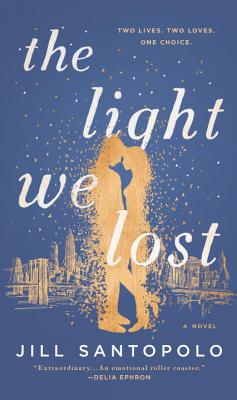 Lucy and Gabe met as Columbia University students on 9/11, when emotions were running high and “our shields were down.” After spending a very intense day together, however, Gabe reunites with an ex, and Lucy doesn’t see him again until graduation, and it’s only for a brief moment.
Lucy and Gabe met as Columbia University students on 9/11, when emotions were running high and “our shields were down.” After spending a very intense day together, however, Gabe reunites with an ex, and Lucy doesn’t see him again until graduation, and it’s only for a brief moment. There are many amazing African-American heroes whom we read and hear about in school, see memorialized around the country, and easily recognize by name. One who isn’t quite as common but easily as exceptional is Robert Smalls, a South Carolina slave who stole a Confederate steamer and sailed it in the Union Navy forces.
There are many amazing African-American heroes whom we read and hear about in school, see memorialized around the country, and easily recognize by name. One who isn’t quite as common but easily as exceptional is Robert Smalls, a South Carolina slave who stole a Confederate steamer and sailed it in the Union Navy forces. Caitlin Hendrix grew up surrounded by the case of the serial murderer dubbed The Prophet. Her father was the lead investigator for the Alameda Sheriff’s Department.
Caitlin Hendrix grew up surrounded by the case of the serial murderer dubbed The Prophet. Her father was the lead investigator for the Alameda Sheriff’s Department. Is there a better way to welcome summer than with a debut novel about summer camp? I don’t think so.
Is there a better way to welcome summer than with a debut novel about summer camp? I don’t think so. I did not want to read this book. The cover creeped me the hell out and I wanted to throw it on the “get rid of this book” pile as fast as possible. [Ed. note: she offered to send it to me.]
I did not want to read this book. The cover creeped me the hell out and I wanted to throw it on the “get rid of this book” pile as fast as possible. [Ed. note: she offered to send it to me.] In the beautifully written opening of Ash Falls, convict Ernie Luntz escapes into Washington mountains following the crash of his prison transport vehicle. As word of Ernie’s run for the hills makes its way through his hometown of Ash Falls, Read unexpectedly turns his fantastic novel into something other than a prison escape story (not that there’s anything wrong with that).
In the beautifully written opening of Ash Falls, convict Ernie Luntz escapes into Washington mountains following the crash of his prison transport vehicle. As word of Ernie’s run for the hills makes its way through his hometown of Ash Falls, Read unexpectedly turns his fantastic novel into something other than a prison escape story (not that there’s anything wrong with that).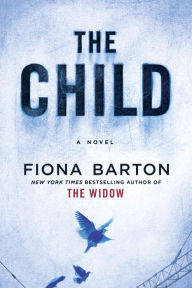 The Child by Fiona Barton (Berkley, June 27)
The Child by Fiona Barton (Berkley, June 27) I’m so excited the review embargo has finally been lifted on Wonder Woman and I can share how good it is!!
I’m so excited the review embargo has finally been lifted on Wonder Woman and I can share how good it is!!
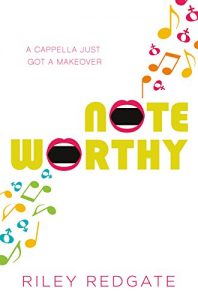 For those old enough to remember the Dustin Hoffman movie Tootsie, Noteworthy may conjure some of those memories.
For those old enough to remember the Dustin Hoffman movie Tootsie, Noteworthy may conjure some of those memories.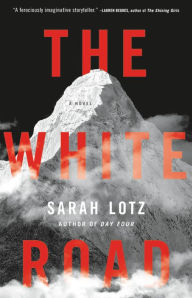 “I met the man who would save my life twice—and ultimately destroy it—on a potholed road in the arse-end of the Welsh countryside.”
“I met the man who would save my life twice—and ultimately destroy it—on a potholed road in the arse-end of the Welsh countryside.”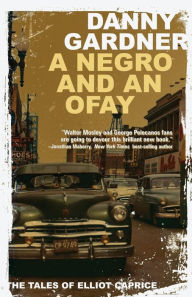 Danny Gardner’s debut is a powerful work of historical crime fiction. Elliot Caprice is a chameleon with no clear space in the world. The son of an interracial couple raised under the wing of a Jewish loan shark, the semi-disgraced Chicago police officer has a history on both sides of the law.
Danny Gardner’s debut is a powerful work of historical crime fiction. Elliot Caprice is a chameleon with no clear space in the world. The son of an interracial couple raised under the wing of a Jewish loan shark, the semi-disgraced Chicago police officer has a history on both sides of the law.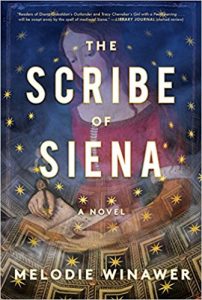 Beatrice is very empathetic, and can feel some of what happens to her patients as she performs neurosurgery on them. Beatrice takes a leave of absence to clear up the affairs of her brother after he passes away overseas.
Beatrice is very empathetic, and can feel some of what happens to her patients as she performs neurosurgery on them. Beatrice takes a leave of absence to clear up the affairs of her brother after he passes away overseas.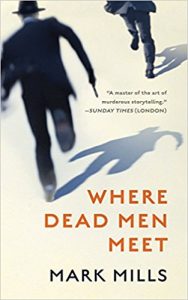 Reading this is like watching a classic Alfred Hitchcock movie, one with an everyman caught up in engrossing intrigue and on the run from dangerous spies and nefarious characters.
Reading this is like watching a classic Alfred Hitchcock movie, one with an everyman caught up in engrossing intrigue and on the run from dangerous spies and nefarious characters. I haven’t done a very good job of hiding the fact I love Fredrik Backman’s work. I’ve adored each of his previous three books published in the US, for their individual distinctiveness as well as their commonalities. But Beartown surpasses them all.
I haven’t done a very good job of hiding the fact I love Fredrik Backman’s work. I’ve adored each of his previous three books published in the US, for their individual distinctiveness as well as their commonalities. But Beartown surpasses them all. Conservative former New York City mayor Michael Bloomberg and liberal former Sierra Club executive director Carl Pope teamed up on this book to show how efforts to save the planet are not only environmentally productive, they’re economically productive as well.
Conservative former New York City mayor Michael Bloomberg and liberal former Sierra Club executive director Carl Pope teamed up on this book to show how efforts to save the planet are not only environmentally productive, they’re economically productive as well. This is one of the best debut novels I’ve ever read. The story opens with a detective, William Fawkes—or Wolf, as he’s known—with a sketchy past being pulled into a case involving a corpse comprised of stitched-together parts from six different bodies.
This is one of the best debut novels I’ve ever read. The story opens with a detective, William Fawkes—or Wolf, as he’s known—with a sketchy past being pulled into a case involving a corpse comprised of stitched-together parts from six different bodies. Heads up, shark and adventure nerds! Resurrecting the Shark is the story of the people who came together over the course of about a hundred years to solve the mystery of a 270-million-year-old fish fossil.
Heads up, shark and adventure nerds! Resurrecting the Shark is the story of the people who came together over the course of about a hundred years to solve the mystery of a 270-million-year-old fish fossil. Goodbye, Things: The New Japanese Minimalism by Fumio Sasaki (W. W. Norton & Company, April 11)
Goodbye, Things: The New Japanese Minimalism by Fumio Sasaki (W. W. Norton & Company, April 11)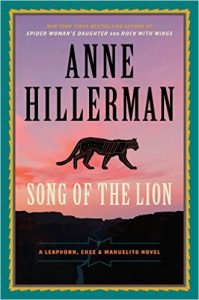 Song of the Lion by Anne Hillerman (Harper, April 11)
Song of the Lion by Anne Hillerman (Harper, April 11)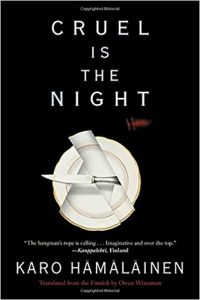 Cruel is the Night by Karo Hämäläinen, trans. by Owen Witesman (Soho Crime, April 11)
Cruel is the Night by Karo Hämäläinen, trans. by Owen Witesman (Soho Crime, April 11) Does anyone need a refresher on the plot of this “tale as old as time”? The one about a girl whose kindness saves a selfish prince and his household from a curse? No? OK, great. I can jump straight into details you may not already know about this latest version.
Does anyone need a refresher on the plot of this “tale as old as time”? The one about a girl whose kindness saves a selfish prince and his household from a curse? No? OK, great. I can jump straight into details you may not already know about this latest version.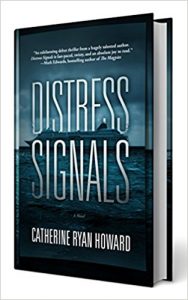 Catherine Ryan Howard’s Distress Signals—shortlisted for the Irish Book Awards’ Crime Novel of the Year after its UK release—opens with a man plunging off a cruise ship into dark waters, but readers will have to wait to discover why he jumped.
Catherine Ryan Howard’s Distress Signals—shortlisted for the Irish Book Awards’ Crime Novel of the Year after its UK release—opens with a man plunging off a cruise ship into dark waters, but readers will have to wait to discover why he jumped. What started out as an impulse purchase ended up being a wonderful relationship.
What started out as an impulse purchase ended up being a wonderful relationship. Beginning at a Wisconsin summer camp in 1962 and spanning six decades, Nickolas Butler’s newest novel is his best yet (and I deeply loved Shotgun Lovesongs).
Beginning at a Wisconsin summer camp in 1962 and spanning six decades, Nickolas Butler’s newest novel is his best yet (and I deeply loved Shotgun Lovesongs). When a terrific mystery is the least fabulous part of a novel, you know you’ve hit the jackpot as a reader. Peter Heller has created a simply sublime protagonist in Celine, a 69-year-old former government worker born with a silver spoon who now works as a PI helping to reunite families.
When a terrific mystery is the least fabulous part of a novel, you know you’ve hit the jackpot as a reader. Peter Heller has created a simply sublime protagonist in Celine, a 69-year-old former government worker born with a silver spoon who now works as a PI helping to reunite families.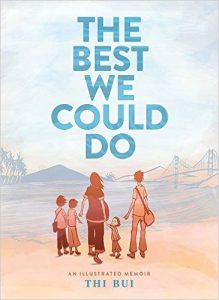 The Best We Could Do by Thi Bui (Abrams ComicArts, March 7)
The Best We Could Do by Thi Bui (Abrams ComicArts, March 7)